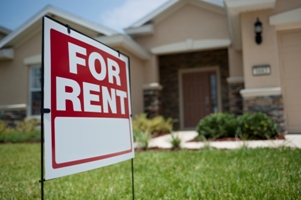The Government’s Covid-19 lockdown prompted move to freeze residential rental increases for six months (from March 26) will stop rent growth nationwide in its tracks, according to Trade Me Property.
Prior to the freeze, the rental market nationwide had seen strong price growth over the last 24 months and, in fact, the latest Trade Me Rental Price Index has the national median weekly rent per week up by 4% year-on-year to $520 in April.
Median weekly rents were up year-on-year in many regions around the country in April. That included the Wellington region where the median rent hit $575, which was an 8.5 % year-on-year increase.
However, Trade Me Property spokesperson Aaron Clancy says those increase are because their Rental Price Index data is based on a three-month rolling average.
It’s too early to see the impact of rent increase freeze at this stage but it’s likely to change the rental market and prices could slow by mid-winter, he says.
“The rental price freeze will bring a sense of relief to renters that are facing many unknowns.
“But it may be a concern for landlords with uncertainty around their own costs. Ongoing discussions on potential council rate increases will be making some landlords nervous.”
Clancy says that during these challenging times it’s important that there is clarity for both parties, so they hope landlords will have more certainty in the coming months.
“For now, it is imperative tenants and landlords communicate with each other and - in the words of the Prime Minister - exercise kindness and understanding while we all figure out what the new normal looks like.”
The alert level three and four restrictions meant that both landlords and tenants had to sit tight until they could move or get a property listed.
In turn, this resulted in both supply and demand for rentals nationwide dipping significantly in April.
Trade Me Property’s data shows the number of properties available to rent in April dropped by 26% as compared to April 2019. Likewise, the number of enquiries on rentals dropped by 55% as compared to the same time last year.
In Wellington, listings were down by 27% year-on-year and demand was down by 57% on April 2019, while in Auckland (where the median rent remained flat on $580) listings were down 31% and demand was down 54%.
But Clancy says he expects to see an increase in demand in May as the alert level restrictions loosen.
After spending seven weeks at home, many Kiwis will have had plenty of time to rethink their current living arrangements, he says.
“So far in May we’re seeing a lot of activity onsite with listings of rental properties shooting back up when compared to April, and plenty of potential tenants coming on to search for a new home.
“We expect to see some very interesting numbers at the end of the month, we suspect plenty of tenants are looking to make a move and will be enticed by the fresh stock that will hit the market.”
It’s the situation beyond May where things get unclear, Clancy adds.
“With landlords unable to issue notice to terminate tenancies for the next few months, the rental freeze in place - and uncertainty around the economy - may cause a dip in the supply of rental properties.
“However, short-term accommodation being moved on the long-term rental market could help to balance supply levels.”
Meanwhile, NZ Property Investor’s recent survey of investors revealed that over half (55.56%) of those who responded believe that rents will level out over the next 12 months, while 26.77% think rents will go down and 17.68% pick that rents will rise.

![[TMM Podcast] Yelsa serves up “marine reserve” of property buyers](https://www.goodreturns.co.nz/pics/mike%20harvey.jpg)



 Search
Search
